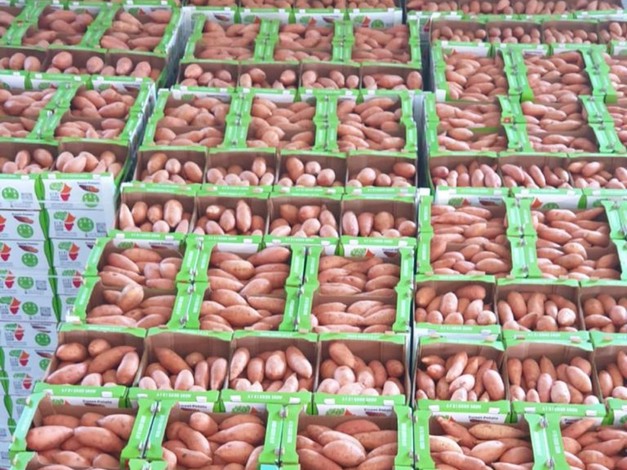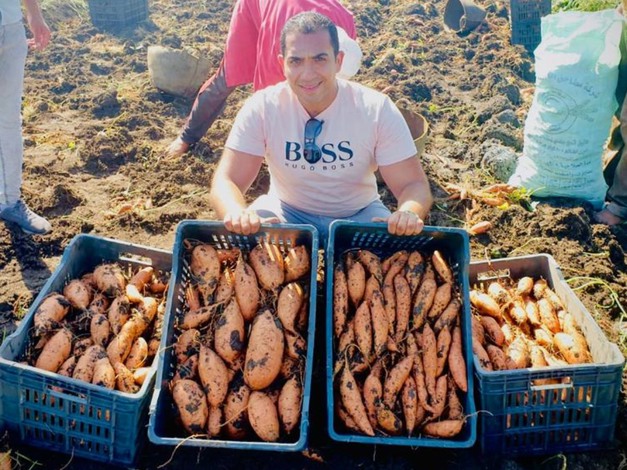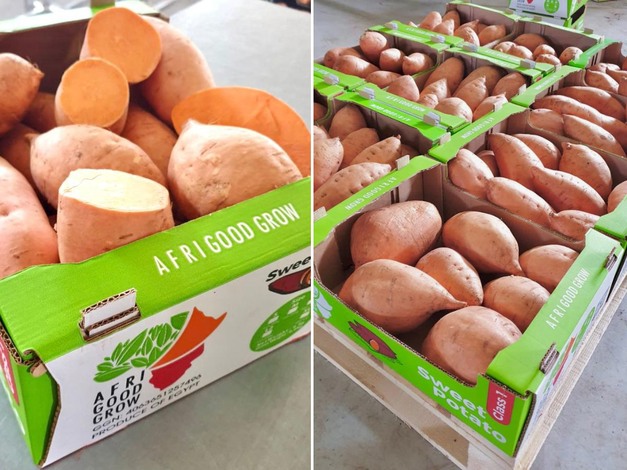It's a roller-coaster ride for Egyptian sweet potato exporters, despite the season being in its early stage. Many factors come into play: deregulation of the season start, smaller sizes, and fluctuating prices... Zayed Lahseen, CEO of AfriGoodGrow, gives an overview of the situation.
"To begin with, the season has started much earlier than usual. There are two main areas for sweet potatoes in Egypt, Kafr El Sheikh, which usually harvests at the end of August, and Damietta, which joins later. This year, growers in Kafr El Sheikh harvested before mid-July, more than a month ahead of schedule."

The season is also marked by the entry of several new players into the industry. Good profitability in the sweet potato industry last season, with margins over 100% for growers at the end of the season - according to Zayed - has encouraged more growers to convert their acreage to sweet potatoes. The most popular varieties are the orange fleshed Bellevue and Beauregard.
The early start to the season, along with higher volumes compared to the previous, will extend calendars for some exporters, says Zayed, " This means an extension of the campaign for exporters who own cold-storing and curing facilities. This is the case for us at AfriGoodGrow, since our calendars will last until May with the Beauregard variety. Exporters who don't own storage facilities will halt in December-January."
The start of the season coincided with very strong demand, but prices soon dropped. Zayed explains, "Demand from the Netherlands and the UK was quite strong, and prices for Egyptian sweet potatoes went up compared with the start of the previous season. However, prices have quickly gone down, and are today 30% lower than at the beginning of the season. Demand from the UK and Netherlands won't be enough to keep prices stable, and we'll have to look for other markets."

Falling prices have prompted the majority of growers to suspend harvesting. "It's a concerted decision, and it's a good initiative to control stocks until demand picks up," says Zayed.
The drop in prices is directly attributable to the earlier-than-usual start to the season, according to the grower. "In two weeks, when people come back from their vacations and kids are back to school, and also since it's going to be colder, demand for sweet potatoes is going to pick up."
Another reason behind the price drop is the abundance of small and medium sizes at the start of the season. "Small and medium sizes are the cheapest, and it's L1s and then L2s and XLs that sell at good prices. This season we're noticing an abundance of medium sizes, but that's nothing to worry about. We'll have larger tubers as the season progresses," says Zayed.
The abundance of small sizes, which has also impacted other products of Egyptian agriculture, is due to the adverse climate and heat waves. Zayed points out, "The climate has been harsh again this year, but we're coping with it. Temperatures are improving as the season progresses. For volumes already harvested, The curing process is very important and is done in dedicated facilities, in temperatures of 30 degrees and humidity of 90%, to prevent fungus and molds. At Afrigoodgrows, we're fortunate to have invested in additional cold-storage and curing facilities ahead of the season."

Despite all these factors that are shaking up the season, Zayed remains zen. "These are normal adjustments in a growing industry. There's a rising hype for sweet potatoes, which are considered a superfood and are being consumed more and more worldwide. At the same time, there are also factors favoring Egyptian producers and exporters this season."
Zayed continues, "First of all, there's not much competition, while we expect a pick-up in demand soon. There are Asian origins such as Vietnam for example, but they export varieties different from ours such as white and red fleshed sweet potatoes. US export calendars are different from ours. There's Spain, which offers simultaneous calendars with Egypt, but they're having problems this year, due to high production costs, lower profitability that discourages growers and reduces acreage, and adverse weather conditions."
"In Egypt, on the other hand, our production costs are lower. We also have a clear advantage over Spanish production, which is the homogeneity of tuber shapes. All in all, everything points to Egypt becoming a major origin in the sweet potato sector," concludes Zayed.
For more information:
Zayed Lahseen
AfriGroodGrow
Tel: +420 739 019 060
Email: [email protected]
www.afrigoodgrow.com
